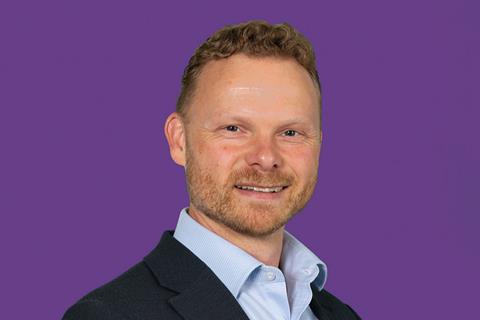Partner (energy and projects), Leeds
I always saw the law as a challenge. Most issues are not clear-cut, hence finding a solution for complex problems motivated me. I completed my undergraduate law (LLB) degree at the University of East Anglia. The LLB course included a German law master’s degree at the University of Trier in Germany, which I started during an Erasmus year and then completed after obtaining the LLB. I then completed my legal practice course at Nottingham Trent University. I qualified into Walker Morris’s energy and infrastructure team after two years of training.

I moved to London in 2005, joining Freshfields’ banking and finance department as a professional support paralegal. After an interesting year in London, I had the opportunity to move to Zurich in Switzerland and join the International Capital Market Association, to coordinate a global legal opinion-seeking exercise involving nearly 70 different jurisdictions.
The German and UK legal systems are fundamentally different. German civil law is based on codified provisions laid down in statutes, while English law originates from common law principles (that is, court judgments and case law creating legal precedents).
From an international legal perspective, we see that English law rather than German is more widely used. In particular, where parties have their origins in different jurisdictions, the choice of law is often English law with the seat of arbitration being London. This provides English lawyers with the ability to work on projects outside England. For example, a large infrastructure project in Kenya, where corporate, construction, and banking and finance documentation is based on English law.
'A few years ago, there were far fewer energy and infrastructure lawyers around. This has since changed, which is a positive sign demonstrating the need for specialised lawyers advising on complex energy regulation'
From an early age, I was interested in cleaner energies. The idea of going to sleep at night knowing that a wind turbine outside produces clean energy and earns money seemed like a ‘win-win’ situation. My interest in energy and infrastructure law was really sparked by a four-month work experience in Brussels with a law firm specialising in renewable energies and the European Renewable Energy Federation (in 2004 when I assisted on the sale of wind power in Germany to a Greek investor).
As part of a secondment, I worked in-house at Drax to assist with the transition of their power station from coal to biomass. Then I worked at National Gas Transmission (formerly National Grid Gas), experiencing the highly regulated world of the UK’s gas storage, transmission and distribution networks. Finally, I went to Scottish Power Energy Management, where I gained valuable insights into energy trading and markets.
Working in-house means you only really have one client – the company that employs you. The scope of work is dominated by internal legal matters, which allows you to really get under the skin of an organisation and deal with day-to-day issues and concerns of the business. In-house secondments are a great way for private practice lawyers to get a much better understanding, and much-needed experience, of how an organisation functions, as well as the issues and pressures their in-house peers face on a day-to-day basis. Private practice lawyers also learn how to deliver commercially sensible legal advice in a fashion that is of real value to the client.
The energy trilemma of balancing energy security, affordability and sustainability (mainly decarbonisation) has become a real focus for governments as well as for companies. A few years ago, there were far fewer energy and infrastructure lawyers around. This has since changed, which is a positive sign demonstrating the need for specialised lawyers advising on complex energy regulation matters.
I always had a passion for renewable and low-carbon energies. Now there are even more angles and facets to the energy trilemma including ESG, natural capital and biodiversity net gain. These topics now seem to dominate most of the conversations I have, including those with other lawyers at international legal conferences.































No comments yet